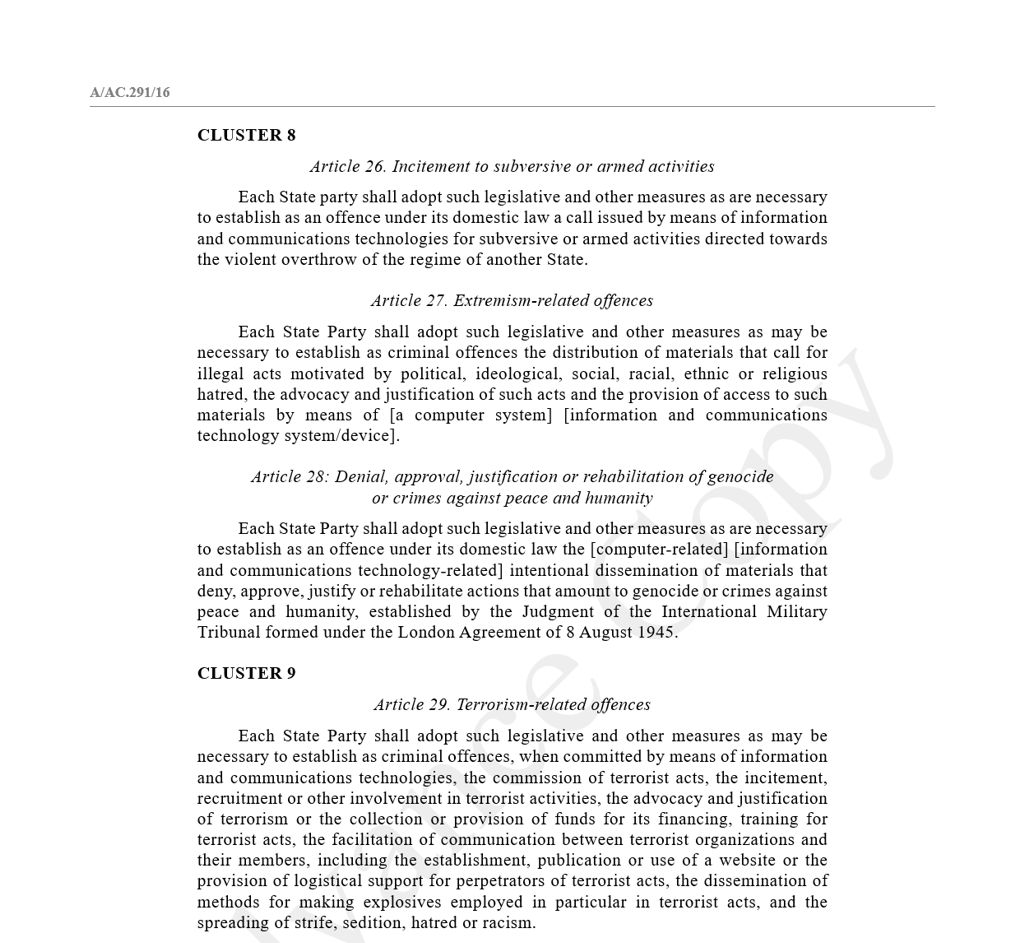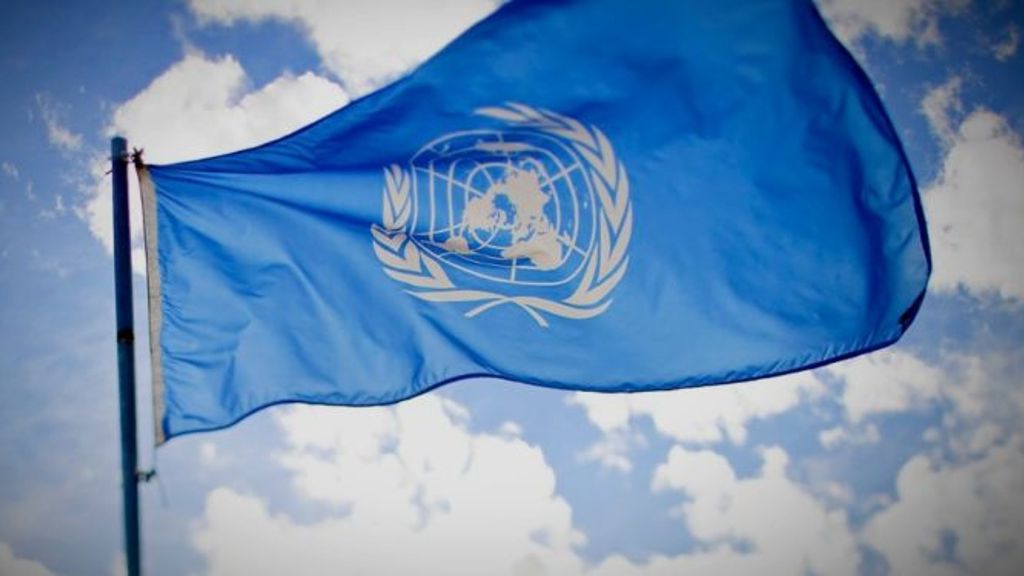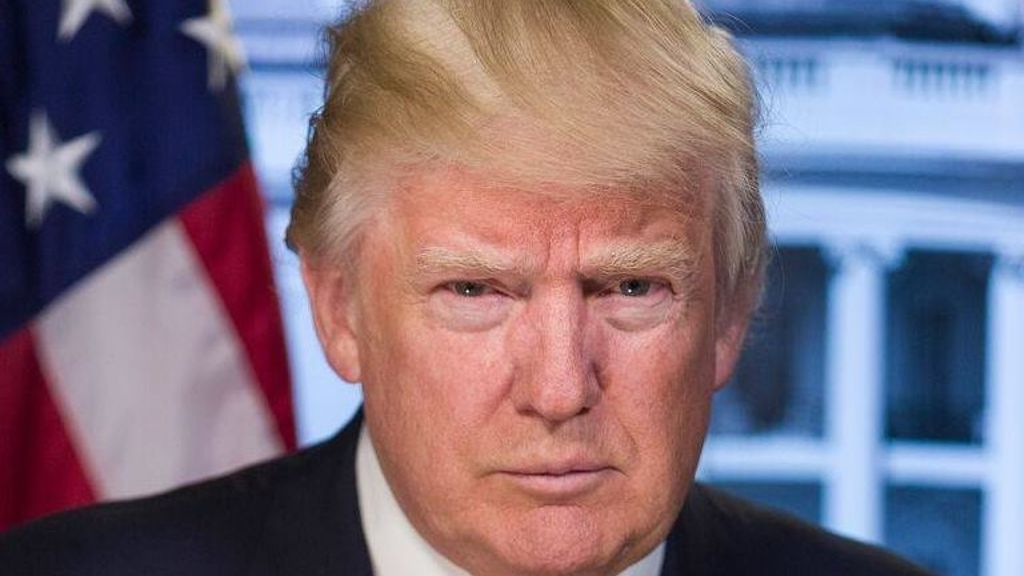The United Nations has launched a new initiative to “counter the use of information and communications technologies” for “criminal purposes,” which appears to apply to individuals who share “misinformation.”
Private companies, including social media platforms such as Facebook’s parent company Meta, are also involved in the venture.
Draft versions of the convention reveal that the UN may criminalize posts that promote “hatred” – including “ideological” and “political” – in addition to the vague term “extremism.” The Chinese Communist Party has also submitted proposals to criminalize sharing information that results in “social disorder.”
The effort began in December 2019, when the United Nations (UN) General Assembly adopted a resolution calling for the formulation of a Convention on Countering the Use of Information and Communications Technologies for Criminal Purposes. Currently, an Ad Hoc committee is working on details – including member states, jurisdiction, and focus areas – for the convention, which will be formalized in September 2024.
While current UN conventions broadly address information and communications technologies, the pending convention will be the first to focus on these methods of communication in the context of “criminal purposes.”
What exactly constitutes “criminal purposes,” however, remains vague, and from the available information about the convention, the term appears to include individuals who spread “misinformation.”
The most recent draft of the convention’s objectives and scope explains how the UN is working with countries to “promote, facilitate and strengthen international cooperation in preventing and combating the use of information and communications technologies for criminal purposes,” which includes compelling countries to adopt “legislative and other measures as are necessary to establish” certain online behaviors as “offence under domestic law.”
Put simply, the UN could potentially override the sovereignty of countries by pushing governments to adopt specific policies about what constitutes “criminal” information shared by citizens.
Article 26, for example, of the draft document calls on countries to adopte ”legislative and other measures“ to criminalize individuals who engage in sharing content that promotes “subversive or armed activities directed towards the violent overthrow of the regime of another State.”
Similarly vague, Article 27 focuses on “extremism-related offences,” which it defines as “the distribution of materials that call for illegal acts motivated by political, ideological, social, racial, ethnic or religious hatred, the advocacy and justification of such acts.”
At face value, the forms of speech the UN is trying to curtail may seem justified, but the broad scope of what constitutes “subversive” posts or the promotion of “political” or “ideological hatred” could easily be used to target content critical of the far-left, globalist agenda of groups like the UN and World Economic Forum (WEF).
For example, Article 29 of the draft document focuses on “terrorism-related offences,” calling on countries to criminalize commissioning, inciting, or recruiting terrorism, which it defines as “spreading of strife, sedition, hatred or racism.”

The Ad Hoc Committee responsible for formulating the details of the convention features representatives from the private sector, too.
Participants include Amazon Web Services, Inc., the Chamber of Commerce of the United States of America, Facebook’s parent company Meta, and Microsoft.
Chinese Communist Party-run entities including the Shanghai Institutes for International Studies and Beijing Normal University have also been involved in deliberations.
INTERPOL has also participated in a discussion about the purview of the convention, alleging that the “prominent threats” the body must face include “misinformation.”
The Chinese Communist Party is also trying to influence the outcome of the convention, adding a proposal that would criminalize spreading information “that could result in serious social disorder.”
In full, the proposal reads:
“Each State Party shall adopt such legislative and other measures as may be necessary to establish as criminal offenses, when committed intentionally and unlawfully, the publishing, distributing, transmitting, or otherwise making available of false information that could result in serious social disorder, including but not limited to information related to natural and human-caused disasters, by means of [a computer system] [an information and communications technology system/device];”
Consolidated negotiating document on the general provisions and the provisions on criminalization and on procedural measures and law enforcement of a comprehensive international convention on countering the use of information and communications technologies for criminal purposes PDF
By Natalie Winters
Read Original Article on WarRoom.org
A_AC291_16_Advance_Copy







